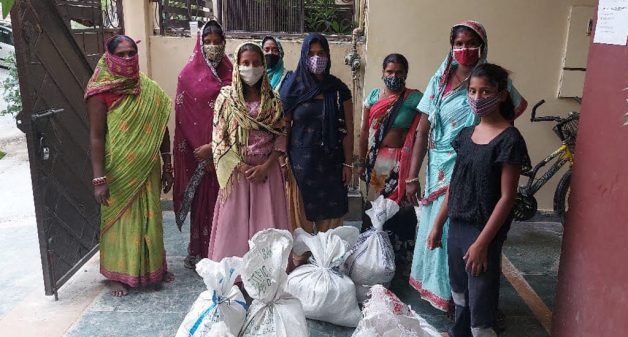Rural India is home of the original gig-economy worker. Enterprising villagers hop from tilling fields to tending shops, to door-to-door selling each day. Read the latest trends in micro-enterprises, rural start-ups and the shifting livelihoods of India’s villagers.
Livelihoods

Rains and elephants compound farmers’ lockdown challenges
Incessant rains and wild elephants damaged water melons that cultivators could not sell during the lockdown. Organizations helped them reach buyers via social media

Committed efforts will create progressive villages
By working together with zeal, development organizations and governments can overcome inherent challenges in rural India and bring about a positive change

Ration sustains marginalized households through lockdown
Relief package of dry rations alleviated the hunger and food insecurity of informal wage workers who had lost their livelihood during the pandemic.

Rural job guarantee program sequesters tons of carbon
MGNREGS, the anti-poverty scheme has ensured food security to millions, especially during the pandemic. The natural asset created through the scheme helps in carbon capture

Kashmir’s plum no longer a plum crop for farmers
With increasing production costs and constant selling price over the years, farmers find growing plums economically unviable. They hope to explore new markets for better returns

Women sustain traditional wisdom of conserving indigenous seeds
Understanding the close link between crop diversity and resilience, women farmers in Mandla ensure that the conservation practice of climate-resilient traditional seeds continues

Extreme weather events destroy Himachal’s apple orchards
Unseasonal rains, snow fall and hailstorms have damaged lakhs of apple trees, ruining Shimla’s famed fruits. This has dented the orchardists’ income and government’s revenue

Ostriches or supplicants? Missing home insurance in rural India
Disasters destroy houses. Despite living in disaster-prone areas, people do not opt for home insurance. They prefer to take the disaster relief offered by the government

Conservation of bio-resources improves farmer’s livelihood
Revival of non-forest timber produce species that are rare and have market value, and the species’ mass multiplication ensures conservation while enhancing farm income